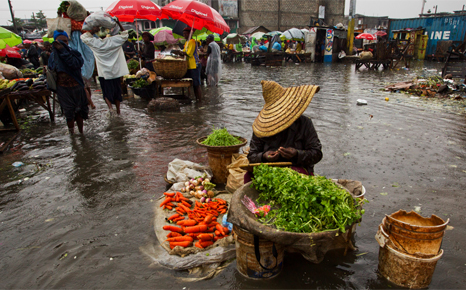Note4Students
From UPSC perspective, the following things are important :
Prelims level: GHG Emissions
Mains level: climate change and food insecurity
Central idea
The article underscores the critical challenges of climate change and food insecurity facing humanity. It emphasizes the significance of climate-smart agriculture (CSA) as a holistic approach, promoting sustainable development, resilience to climate change, and greenhouse gas emission reduction.
Key Highlights:
- Global Challenges: Addressing climate change and food insecurity as critical global issues.
- Impact on Agriculture: Discussing the negative effects of climate change on agriculture, leading to increased challenges for farmers.
- Holistic Solution: Introducing climate-smart agriculture (CSA) as a holistic solution to adaptation and mitigation challenges.
- Emphasizing Importance: Highlighting the importance of CSA in enhancing resilience, improving productivity, and reducing greenhouse gas emissions.
- Government Initiatives: Citing Indian government initiatives promoting CSA, such as the National Adaptation Fund and Soil Health Mission.
Key Challenges:
- Climate Risks: Analyzing the substantial risks posed by climate change to agricultural productivity, with India potentially facing a 9% decline in crop yield.
- Need for Reforms: Discussing the need for significant reforms in the agriculture industry to adapt traditional farming practices to climate change.
- Transformative Approach: Emphasizing the requirement for a radical transformation of the agriculture sector to achieve sustainable development goals.
Key Terms/Phrases:
- Holistic Approach: Exploring the concept of climate-smart agriculture (CSA) and its three pillars.
- Precision Farming: Highlighting the importance of precision farming in optimizing agricultural methods.
- Climate-Resilient Agriculture: Describing the role of CSA in building resilience against climate change.
- Agroforestry and Carbon Sequestration: Identifying specific CSA measures for environmental benefits.
- Paris Agreement: Linking CSA to global initiatives such as the Paris Agreement on reducing greenhouse gas emissions.
Key Examples and References:
- Global Efforts: Noting community-supported agriculture efforts worldwide as examples of CSA in action.
- Specific Measures: Citing studies from the northwest Indo-Gangetic Plain showcasing the benefits of CSA for wheat production.
- Government Support: Referring to government initiatives in India, including the Soil Health Card Scheme.
- International Frameworks: Connecting CSA to international frameworks like the United Nations’ Sustainable Development Goals.
Key Facts/Data:
- Climate Impact: Highlighting the potential 9% decline in crop yield in India due to climate change.
- GHG Emissions: Noting agriculture’s significant share (17%) in greenhouse gas emissions in 2018.
- Economic Autonomy: Pointing out the economic autonomy gained by farmers through CSA implementation.
- Government Initiatives: Providing data on government spending on initiatives like the National Adaptation Fund.
Critical Analysis:
- Urgency of Action: Emphasizing the urgency of addressing climate change’s impact on agriculture and the need for a comprehensive approach like CSA.
- Positive Outcomes: Discussing the positive outcomes of CSA, including economic autonomy for farmers and benefits to biodiversity conservation.
- Localized Responses: Highlighting the importance of localized responses to climate change and the role of CSA in meeting international obligations.
Way Forward:
- Investment in Capacity-Building: Recommending continued investment in capacity-building programs for CSA.
- Knowledge Dissemination: Emphasizing the importance of providing practical tools and knowledge for the adoption of CSA.
- Triple Goals: Stating the role of CSA in ensuring food security, empowering farmers, and protecting ecosystems.
- Unique Juncture in India: Recognizing the unique juncture in India where CSA adoption is essential due to climate vulnerability and agricultural significance.
Get an IAS/IPS ranker as your 1: 1 personal mentor for UPSC 2024


